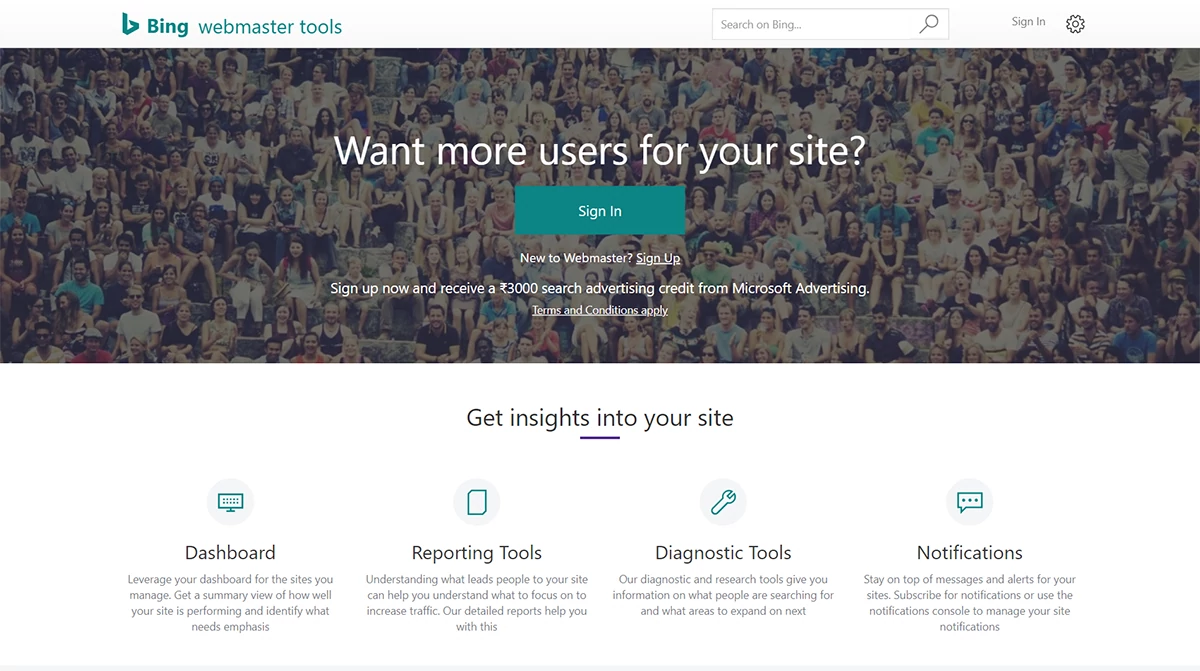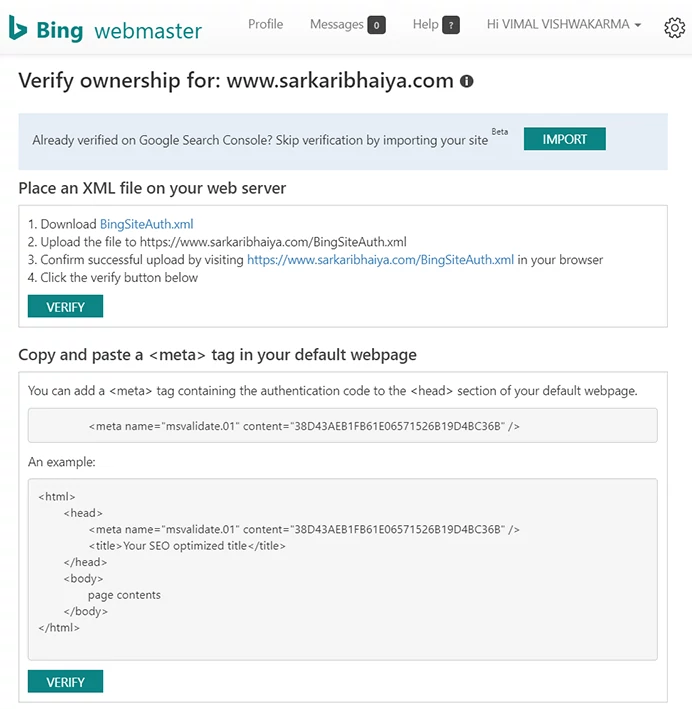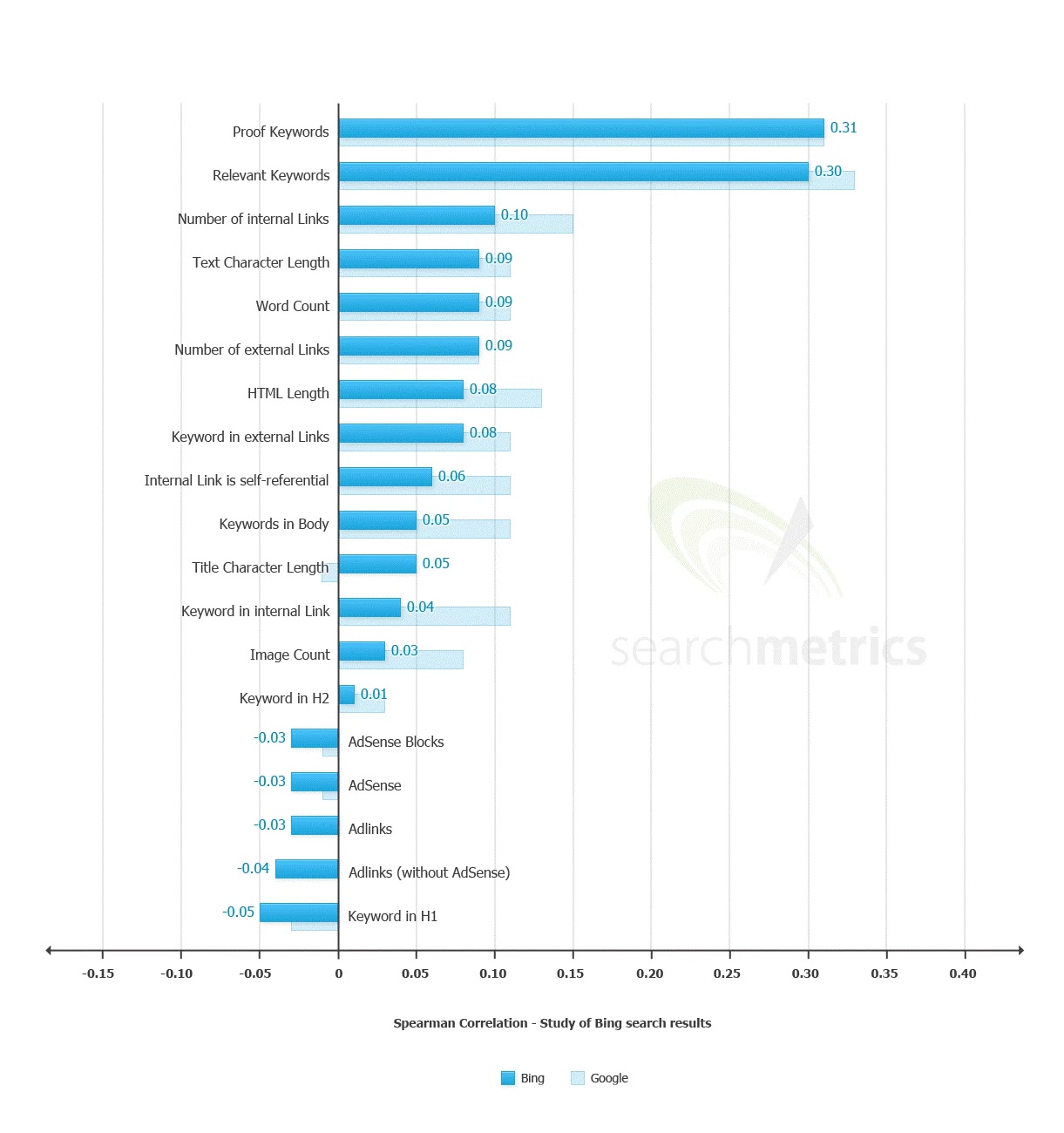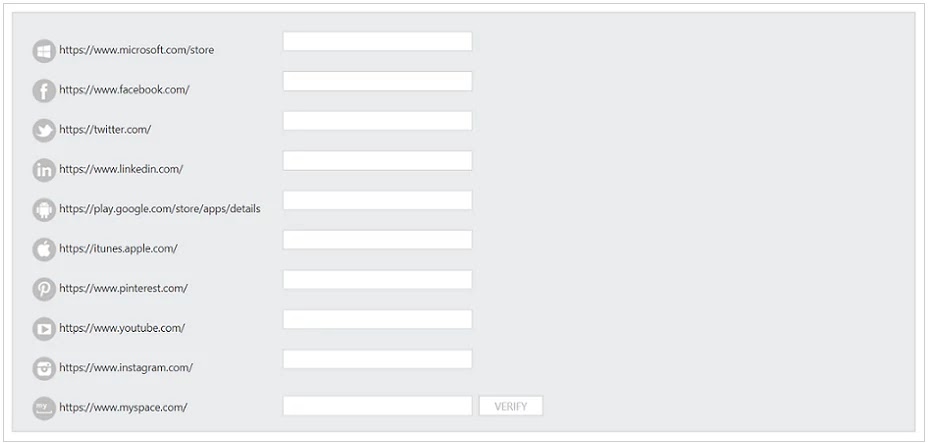Bing is the sleeping giant in the SEO industry, but many marketers are unaware of this. For most marketers, Google is the only thing that comes to mind when discussing SEO. It’s generally believed that once you succeed at pleasing the search giant, other search engines will follow suit and send you traffic.
However, most people don’t consider that the world’s second most popular search engine can equally be a profitable channel. In this article, you’ll learn how to rank on Bing in 2025 to easily generate more website traffic and sales.
Read Also: 33+ Best WordPress Plugins & Tools for Your Site.
Why is Bing Important in 2025?
The truth is, Bing can no longer be ignored regarding SEO, except if you want to be left out.
It doesn’t look like Bing gets much search traffic on the surface. However, when you think it equally powers Yahoo, MSN, and DuckDuckGo, you realize that optimizing for Bing is probably not such a bad idea.
As of February 2025, Bing had 11% of the search engine market share (because their search engine also powers the other three search engines (already listed above).

Furthermore, according to Search Engine Land, “Bing also has a good market share in the US, at 21.3%,” and Yahoo-Bing network equally has a select audience in most verticals, see screenshot below:

Believe it or not, this isn’t going to stop anytime soon. Are you wondering why?
Well, Bing has lower competition than Google, which is because all marketers often go after Google.
Now that you know why you should start paying attention to Bing SEO.
It’s wise to step back and review your choices. Is Google the only channel worth paying attention to?
How to Rank On Bing in 2025
Optimizing for Bing slightly differs from optimizing for Google. Both companies use different patented algorithms to dish out results, and each of them weighs various factors differently.
Here’s the step-by-step guide to ranking high on the Bing search engine in 2025 and beyond.
1). Get your Website Indexed
Since Bing now powers Yahoo too, you’ll have to submit your website to only Bing’s Webmaster Tools for both search engines:

The first step here is to create a Bing account (if you don’t have one yet). You can use your Microsoft login or Outlook (Hotmail account) to do that.
Then, you can go to Bing Webmaster’s page and fill out the forms to submit your site. You’ll equally need the URL address for your website’s XML sitemap.
When everything is done, the next step will be to verify ownership of your site by copying and pasting a certain code into the right place on your website:

Bing has a comprehensive set of instructions on how to go about this.
Once you’re done with everything, your website should be indexed within a few minutes, and you’ll start noticing traffic trickling in after some time.
2). Categorize and Tag your website
Like with Google and other search engines, categories and tags help make your content discoverable by your audiences for the right searches.
Excitingly, it’s pretty easy to add categories and tags on WordPress for each page and blog post created. These important labels tell human readers and the search algorithms what to expect from the blog post, just like a header and title would.
Below is what WordPress’s categories and tags look like:

Both the description and slug of a tag help further explain the content’s purpose. These signals are used in sitemaps to pinpoint sections. It’s useful for search engines to classify content to deliver proper ad experiences via their platforms.
Among all the SEO tactics, categories and tags are the most essential as they give the overall picture of your site. Without them, bounce rates will skyrocket, and organic search traffic will drop.
3). Always Write Great Content
According to Search Engine Land, the most popular first action a user takes before buying something on the internet is to search on search engines.

To be featured in those search results, you’ll need high-quality content to generate organic search traffic.
Bing basically examines the content quality, which is described as authority, utility, and presentation. Every web content needs to satisfy this criterion to have a chance of appearing high on Bing’s search result.
I’m sure you’ve heard the famous cliché that “content is king” on the internet, and to win on Bing, you need great content to meet its stern requirements.
According to Buffer, the ideal length for a blog post is 1,600 words, which takes the average individual about 7 minutes to read.
To maximize your chances of ranking high on Bing in 2025, you must focus on writing nothing but high-quality content that is well-sourced, well-researched, and well-cited, and all your content needs to include lots of good images too.
You’re simply frustrating your chances of ranking on Bing if the quality of your content is below this standard.
4). User Engagement Is Vital
User engagement is one of the strongest signals in Bing, and you can’t ignore it.
Bing measures this via what they call “pogo-sticking,” which is basically when a user is going back and forth from the search engine results page to individual search results.
In other words, pogo-sticking is when someone performs a search, clicks on a link, sees that it’s not what he’s looking for, and immediately hits the back button to return to the original search result. This event is equally closely measured in Google Analytics under the “bounce rate” section.
So if people visit your website from the search results and click the ‘back’ button, this is a clear sign of poor user experience with Bing.
However, if people visit your website from the search results and are not returning to the SERPs to continue searching, this is a powerful signal, and Bing will reward you with a higher ranking.
5). Use SEO Keywords Properly
Using keywords has proven to be an essential ranking factor in search engines, and Bing is no different. Below is a chart of how Google and Bing compare to one another when it comes to keywords:

While factors like internal links are more important in Google than Bing, relevant, contextual keywords are paramount. This is why blogging is still one of the most popular forms of content marketing today.
You want to ensure that each page on your site is well-optimized with relevant keywords and other related terms that give descriptive information about your target keywords.
For example, in the hiking industry, you’d want to describe features of your backpacks so search engines understand what traffic to send your way.
Like Google, Bing’s algorithms consider the surrounding 5 to 7 words for each keyword and its density within the content when determining search rankings. You can’t just spam your content with keywords to rank for hiking products.
You need to be creative and natural with your keyword usage to make an impact.
6). Social Signals are Important
There have been a lot of arguments on whether social signals affect Google’s search rankings, and I can tell you with 100% certainty that they do.
Don’t get caught up in the argument. Just ensure that social media signals are part of your overall social media SEO tactics now, as they affect your rankings in both Google and Bing.
However, Bing has a much stronger dependence on social signals than Google.
Therefore, leverage the power of social media, and you will benefit more from both search engines in terms of ranking.
7). Bing Authorship Matters
Google introduced (and killed) Authorship, enabling people to claim their written content.
With this, Google could easily figure out the real experts in any industry. Admittedly, they have murdered Authorship for now, but they still track who is who through entities and schema data.
Therefore, instead, you should use Bing connected pages feature:

Add your profiles and click on the verify button.
8). Backlinks Are Less Important (But Get Them)
With Bing, backlinks aren’t as important as they are with Google
But they still play a role in Bing SEO.
According to Search Engine Land, “a Microsoft spokesperson from Bing confirmed that “there are some factors that come into account with ranking signals, backlinks being one of them.”
They explained that backlinks are still a critical ranking signal, which will not change anytime soon.”
Therefore, I suggest you keep building links to your website using our guest posting service. [Well, It’s a sales pitch and interlinking too!
It will help you on most of the search engines on the web but pay more attention to Bing’s movements over the next couple of years.
9). Inbound Anchor Text Is Also Important
Bing puts more weight on the use of anchor text than Google does.
If you want to rank for “hiking gear,” you need links with “hiking gear” as the anchor text.
Furthermore, Bing is not as good as Google regarding keyword matching. While Google is good at identifying context around a keyword and synonyms, Bing needs spoon-feeding.
The danger is that over-optimizing your anchor texts will trigger the Google Penguin filter.
So the key is this…
Ensure that the links coming from authority websites are focused on exact anchors, while the other links use a combination of anchor terms.
You can rank in Bing while avoiding the Google Penguin penalty.
10). Site Structure and Code Are Essential
Bing offers some excellent pieces of advice about your website coding and structure.
Firstly, they suggest that quality content should be kept close to the surface. In other words, none of your content should be more than three clicks away from your site’s homepage.
Aside from that, it’s also good to use a broad to specific structure flow. For instance, you might choose something like:
SEO => Link Building => Strategies => Furniture => Chairs
With this structure, Bing will be happy regarding the site structure ranking factor.
11). Page Authority also Matters
When comparing Bing and Google results, you’ll notice that Bing doesn’t place as much weight on backlinks, as I stated earlier.
However, it does place a lot of weight on website authority.
In other words, it’s easier to rank a new domain in Google than in Bing. Having an old domain will give you an additional boost across Bing’s results.
Therefore, you are golden if you have an aged domain with your keyword!
And even if you have only an older domain without your target keyword, you’re still in a great position. You won’t do so well with a brand-new domain.
12). Overall Onpage Optimization
On-page optimization is the same thing for Bing SEO as for Google.
Read Also: How to Improve SEO: 8 Tactics that Don’t Need New Content
You want to make proper use of the following:
- Meta title
- Keyword tags
- Meta descriptions
Bing places lots of importance on title tags but keeps the user engagement signals in mind the following. Just like with Google, it’s advisable to have one H1 tag for every page to establish the main topic.
Then you can use the H2 and H3 tags for subtopics.
It is equally worth mentioning that Bing sometimes swaps out your H1 tag with your Meta Description in the search engine result pages, so you want to be creative with your headings.
Conclusion:
Although they may not be compared to Google in driving traffic, the combination of Bing and Yahoo is still a solid search option used by people worldwide and can always give you an avalanche of traffic.
The landscape is more competitive on Google; thus, they use lots of filters to make their job easy and our job hard. They’re better positioned to quote terms, steal our content and traffic and get away with it.
But Bing is easier, less competitive, and no one’s trying so hard to rank on it. That’s a massive opportunity for you.


